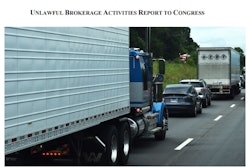Following the Supreme Court’s recent decision to overturn the Chevron doctrine that gave deference to federal agencies’ interpretations of ambiguous laws and statutes, a group of Senators is looking to keep such deference in place with the introduction of a bill to codify Chevron and reform the regulatory process.
The Stop Corporate Capture Act, introduced by Sen. Elizabeth Warren (D-Massachusetts), would “bring transparency and efficiency to the federal rulemaking process, and most importantly, will make sure corporate interest groups can’t substitute their preferences for the judgment of Congress and the expert agencies,” Warren said.
In addition to codifying Chevron, which had been the regulatory standard since 1984 before the Supreme Court struck it down, the bill aims to expand public participation in the rulemaking process, increase transparency in rulemakings and more.
It's co-sponsored by Sens. Richard Blumenthal (D-Connecticut), Cory Booker (D-New Jersey), Mazie Hirono (D-Hawaii), Ben Ray Luján (D-New Mexico), Edward J. Markey (D-Massachusetts), Jeff Merkley (D-Oregon), Bernie Sanders (I-Vermont), Chris Van Hollen (D-Maryland), Peter Welch (D-Vermont), and Ron Wyden (D-Oregon). The same legislation was previously introduced in the U.S. House in 2023 by Rep. Pramila Jayapal (D-Washington), but it's seen no movement.
As reported, the recent Supreme Court ruling overturning Chevron could result in legal challenges to a number of trucking-related regulations, including parts of the electronic logging device mandate and more.
Congressional attention has been high on various regulatory initiatives of late. During a House Transportation and Infrastructure Committee meeting held Wednesday about the Department of Transportation's Regulatory Agenda, Rep. Eric Burlison (R-Missouri) asked hearing witnesses whether certain regulations were made with Congressional intent. Burlison highlighted FMCSA's pursuit of a speed-limiter mandate, as well as the Environmental Protection Agency's greenhouse gas emission rules, with a question directed at Lewie Pugh, executive vice president of the Owner-Operator Independent Drivers Association.
With his small-business trucker perspective, Pugh said he felt "certain folks want these kinds of things" to "take away a small business’s advantage to make a profit, like the speed limiter rule that will put small carriers at a competitive disadvantage to large carriers. I think much of this comes from special interest groups who may not have any experience with commercial trucking.”
[Related: Supreme Court deals major blows to federal regulators]
Bill sponsors said the bill could modernize and reform the rulemaking process by:
- Streamlining the White House’s review period for regulations, creating a 120-day time limit for review. Significant regulatory actions would begin with a 60-day review process, and the White House’s Office of Information and Regulatory Affairs (OIRA) could extend the review period by a single 60-day extension if it provides the agency with, and makes publicly available, a written justification. OIRA review is currently limited to 90 days with the option for a one-time 30-day extension.
- Authorizing agencies to reinstate rules that are rescinded by Congress through the Congressional Review Act. (In recent memory, Congress has attempted to overturn the Department of Labor’s new independent contractor rule and the Environmental Protection Agency’s Phase 3 Greenhouse Gas regulations using the CRA.)
- Reforming agencies’ cost-benefit analysis to emphasize public benefits of a rule, including non-quantifiable benefits like promoting human dignity, securing child safety, and preventing discrimination.
To increase public participation in the rulemaking process, the bill would:
- Create an Office of the Public Advocate to help members of the public participate more effectively in regulatory proceedings.
- Strengthen agency procedures for notifying the public about pending rulemakings by requiring that agencies notify interested parties within two days of publication of a notice of proposed rulemaking, including by using social media accounts or provided contact information.
- Require agencies to respond to citizen petitions for rulemaking that contain 100,000 or more signatures.
Finally, to increase transparency in the rulemaking process, the legislation would:
- Require all rulemaking participants to disclose industry-funded research or other related conflicts of interest.
- Require any submitted scientific or other technical research that raises a specified corporate conflict of interest be made available for independent public review.
- Bring transparency to the White House regulatory review process by requiring disclosure of changes to draft rules during that process and the source of those changes.
- Require agency officials to provide justification when the regulatory review process ends with a rule being withdrawn.
- Establish financial penalties for corporate special interests that knowingly submit false information during the rulemaking process.
[Related: FMCSA pleads with Congress for more power to punish brokered-freight fraudsters]











